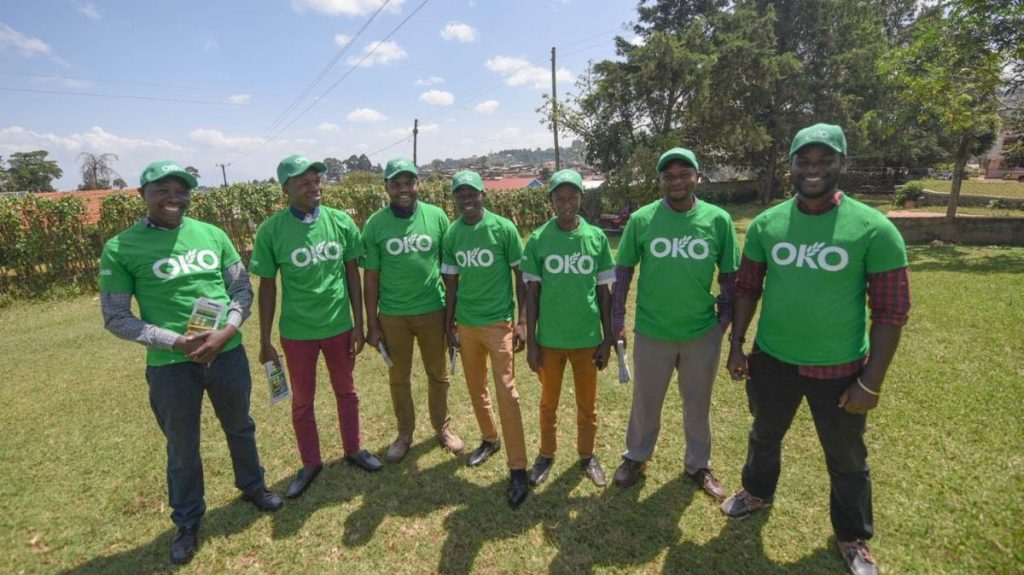Acer’s bringing the heat to the gaming arena with its latest Nitro lineup. We’re talking new laptops and a compact desktop, all juiced up…
Ugandan insurtech startup secures $1.2-million

Bamako-based insurtech startup OKO has raised $1.2-million in a seed investment round led by Newfund and ResiliAnce with participation from Mercy Corps Venture, Techstars, ImpactAssets, and RaSa.
OKO secures $1.2-million in seed funding
According to reports, the insurtech that provides inclusive agricultural insurance to secure farmers’ income across Africa, will be using the funding to expand its footprint in Mali and Uganda along with other African markets such as the Ivory Coast.
Augustin Sayer, partner at Newfund attributes their investment into the insurtech startup to its growing business model that has approximately 7 000 paying customers in Mali and compensated more than 1 000 who were impacted by the floods in 2020, positively contributing to the agricultural sector in Uganda and Mali.
“We believe recent advancement in iOT and data availability will lead to the rise of parametric insurance in Africa for the benefit of the local populations. Simon and his team have built solid bases in Mali from which OKO can now expand in new countries and offer new insurance products.”
OKO
Founded in 2017, the insurtech startup provides index insurance and other farming-related services to smallholder farmers in emerging countries such as Mali and Uganda.
By using state-of-the-art technology, the insurtech’s platform is able to monitor rainfall and crop evolution to create data analysis and provide accurate insurance catering to this to protect its clients and provide farmers with access to financing. In addition, OKO utilises satellite data and mobile payments to create automated insurance products for farmers whose fields are affected adversely by weather events — primarily droughts and floods.
Simon Schwall, founder of OKO explains that the insurtech is focused on financially empowering African farmers.
“Agriculture is by far the largest source of occupation in Africa, with an estimated 33 million farms. And yet, farmers are deprived from basic financial services like insurance and loans. We are using technology to solve this issue and secure the income of those farmers”.
The insurtech claims that most of its smallholder farm clients grow maize, cotton, sesame, or millet.
With a strong focus on the agricultural sector, OKO works alongside agro-industries to assist them with their sustainability goals and secure relationships with suppliers, acting as the middle-man bridge between retailers and smallholder farmers. OKO claims that successful pilots of this were completed with ABInBev and Touton in Uganda.
Schwall provides insight into the future plans for the insurtech.
“We need to find more partners who can bring our product to farmers, be it NGOs, agro-industrial players, mobile operators, or governmental programmes. We proved that our solution is working and answers a strong need. Now we need to scale.”

How does it work for farmers
To opt for its services, farmers must simply connect to the OKO platform via their cellphone (a smartphone is not required to use the service). By dialing a short code to obtain more information and pay through mobile money services.
In order to launch this service, OKO has partnered with mobile operators such as Orange.
Daniel Block from Mercy Corps Ventures comments on the insurtech’s innovation to partner with other companies to offer a seamless digital experience for its clients.
“While other micro-insurance for farmers exist, we were impressed by OKO’s ability to partner with a pan-African operator like Orange and establish a direct consumer link, which allows for an exciting opportunity to drive deeper user engagement and expand to a suite of insurance products for rural farmers in the future.”
Read more: Kenyan fintech tech startup secures funding to regionally expand
Read more: Nigerian fintech Okra secures $3.5-million investment
Featured image: OKO, (Supplied)

